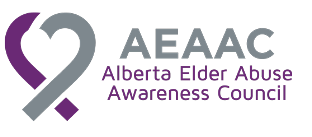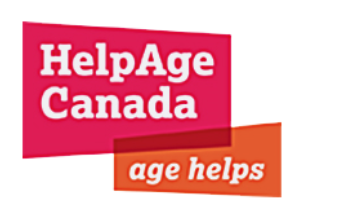Join BC’s 15-member Council to Reduce Elder Abuse in Wearing Purple on June 15th
to promote World Elder Abuse Awareness Day.
Vancouver, British Columbia. June 15th is World Elder Abuse Awareness Day and the 15 members of BC’s Council to Reduce Elder Abuse (CREA) will be wearing something purple to commemorate this day and to shine a light on this important, yet seldom discussed, issue.
“The abuse of older adults - of our grandparents, neighbours, aunts, uncles or older friends - is something people rarely think about, or speak about,” says Martha Jane Lewis, CREA Chair and Executive Director of the BC Centre for Elder Advocacy and Support, “but each year thousands of older British Columbians experience some form of abuse. We receive hundreds of calls every month at the Seniors Abuse and Information Line (1 866 437-1940) from people seeking help,” she says.
Barb MacLean, Executive Director of the Family Caregivers of BC and CREA member agrees. “Some older adults may rely on others to help them with their day-to-day needs, which can lead to situations of abuse. They may be over-medicated, or under-medicated, kept socially isolated, denied access to visitors or friends, or they may be victims of neglect.” Studies show that seniors are most at risk of suffering violence at the hands of a family member or a caregiver.
World Elder Abuse Awareness Day was first observed on June 15th 2006, and since then British Columbia has seen its population of older people steadily increase. Last July, Canada reached a milestone with the number of people aged 65 years and older overtaking the number of children under 15 for the first time in our history; in BC, this milestone occurred in 2011. “As the population ages,” notes Superintendent Mark Fisher, RCMP Officer in Charge and CREA member, “there will be a greater proportion of seniors in our province at risk of elder abuse.”
CREA is protecting seniors by collaborating to strengthen the foundation of existing supports and protection mechanisms. It is raising awareness about this issue and informing British Columbians about the various forms of elder abuse and how to get help.
Last year, CREA provided community capacity building grants of up to $50,000 each to 14 organizations and their partners to undertake actions in BC to reduce elder abuse. These actions include: assessing the impact of elder abuse in the LGBT community; building a strong foundation of awareness and support for the safety of Kwadacha Elders in Northern BC; and developing and delivering a customizable, ‘train-the-trainer’ training module to frontline criminal justice practitioners, victim services workers and community professionals.
“There are different kinds of abuse and neglect,” says Supt. Mark Fisher. Some signs of elder abuse may include: changes in behaviour, depression or agitation (psychological abuse); changes to consumer and banking habits, or to legal documents (financial abuse); bruises or injuries in various stages of healing (physical abuse); inappropriate clothing, being over or under-medicated, or poor personal hygiene (neglect).
“Join CREA Members in wearing purple on June 15th to raise awareness about elder abuse and plan to take action,” urges Sheila Pither, a Council of Senior Citizens’ Organizations (COSCO) representative and CREA member. “One of the ways you can help prevent abuse is to call or visit your parents, and older relatives or friends. We always mean to keep in touch, but time passes and we aren’t there to recognize the signs that an important older person in our life is being abused.”
To find out more, or if someone you know is being abused, call the Seniors Abuse and Information Line (SAIL) 1 866 437-1940, toll free, from anywhere in the province, from 8 am to 8 pm daily, excluding statutory holidays, or in Vancouver: 604 437-1940.
SAIL is operated by the BC Centre for Elder Advocacy and Support http://bcceas.ca.
For more information, go to gov.bc.ca/elderabuse.
If there is imminent danger and you think the situation is an emergency, please call 9-1-1.



















